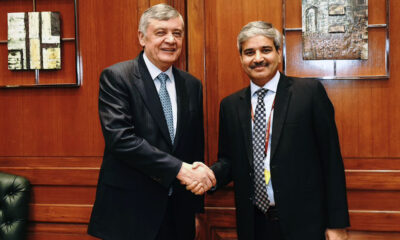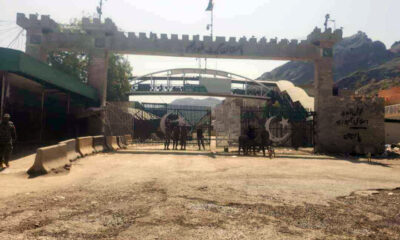Latest News
Neglecting climate change in Afghanistan will be catastrophic: IEA
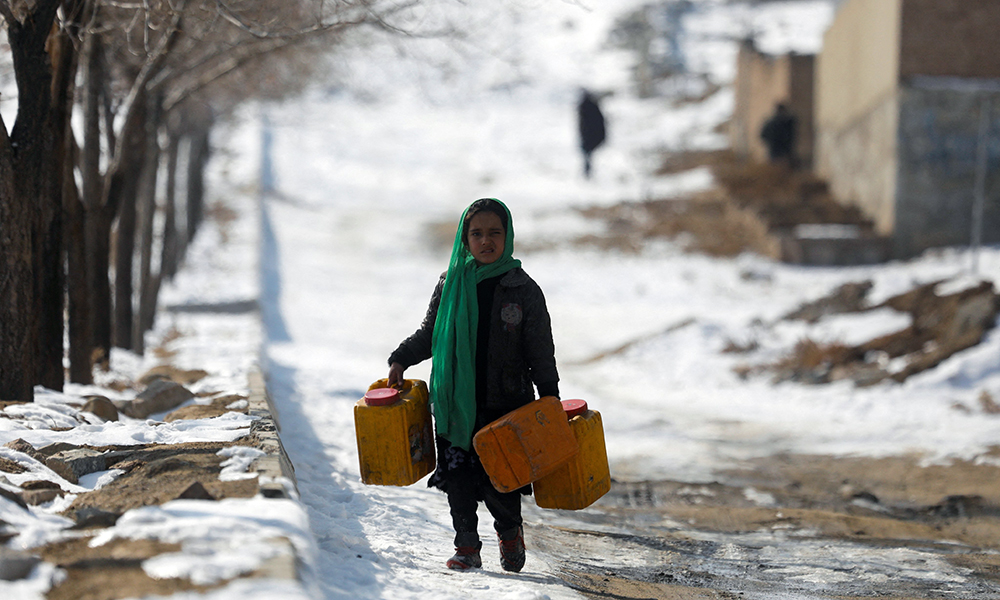
Afghanistan stands among the nations that continue to face devastating consequences of climate change, but despite this the country has had to endure blatant injustice on the part of the international community regarding this critical issue.
After the return to power of the Islamic Emirate, the international community not only imposed various sanctions, but approached the issue of climate change in Afghanistan from a political perspective.
Consequently, with the suspension of 32 environmental and climate change projects, restricting Afghanistan’s access to pledged financial resources, and the exclusion of Afghanistan from regional and international meetings and conferences on environmental and climate issues, there has been blatant injustice against the people of Afghanistan.
In an article published by the Islamic Emirate’s official al Emarah on Thursday, the Islamic Emirate stated that as the Earth’s temperature continues to rise, climate change poses a threat to all facets of human existence.
Pointing out that countries lacking in resources, including Afghanistan, face heightened vulnerability to the perils of climate change, as they lack the requisite means and infrastructure to effectively mitigate and manage its effects.
According to information from Afghanistan’s National Environmental Protection Agency (NEPA), temperatures in the southern regions of the country have increased by 2.4 degrees Celsius over the past century, Hindu Kush regions by 1 degree Celsius, central and northern highlands by 1.6 to 1.7 degrees Celsius, and eastern regions of Afghanistan by 0.6 degrees Celsius.
This has created numerous problems in urban and rural areas of Afghanistan, including increased poverty, migration, recurring droughts, floods, rising temperatures, destruction of farms and forests, food shortages, livestock deaths, and the emergence of various diseases.
“These can be identified as the undesirable consequences and impacts of climate change in Afghanistan,” the report read.
The continuation of this situation has severely affected not only the water, agriculture, livestock, forests, and grasslands sectors but also significantly impacted the social and economic lives of the people of Afghanistan, as well as health, energy, biodiversity, and ecosystems, al Emarah reported.
Despite the challenges and existing problems, officials at NEPA have made necessary efforts to manage the issue of climate change in Afghanistan utilizing available resources. Over the past three years, practical steps have been taken regarding drafting, revising, and amending laws, policies, regulations, and work plans, as well as project design.
Revision of environmental laws, national environmental policy, regulations on ozone-depleting substances, approval of the KIGALI Amendment to the Montreal Protocol 2020, and other related documents can be highlighted as prominent actions in the field of climate change mitigation.
Other steps have also been taken, including the prioritization of climate-compatible water and watershed projects, the restoration of degraded ecosystems, sustainable management plans for Nuristan National Park, sustainable forest and land management projects, and combating land degradation and biodiversity loss through enhancing sustainable food systems in Afghanistan.
The Islamic Emirate, under its environmental protection policy for Afghanistan, has placed climate change management at the forefront of its work priorities and has initiated efforts to mitigate the situation with the resources at hand.
With ensuring security nationwide, the Islamic Emirate has provided a conducive environment for implementing projects in various sectors across Afghanistan.
As climate change is an overarching issue, tackling the challenges and risks it poses requires joint efforts from all governments and collaboration among all stakeholders.
In light of this, the international community, nations, and pertinent organizations ought to prioritize environmental and climate change matters in Afghanistan. They should take practical and genuine steps by resuming suspended environmental and climate change projects, facilitating access to pledged financial resources, and creating opportunities for active Afghan participation in regional and international forums and conferences, al Emarah reported.
“Moreover, throughout this period, the people of Afghanistan have been directly impacted by the consequences of climate change, enduring significant financial and human losses.
“Therefore, the global community and pertinent organizations must extricate the environmental issue and climate change in Afghanistan from political spheres, conceiving it instead as a human dilemma,” the report read.
Latest News
Japan pledges emergency aid to Afghanistan’s flood victims

The Japanese Embassy in Afghanistan announced Thursday it will provide emergency relief to flood-hit people in northern Afghanistan.
According to a statement issued by the embassy, relief will be provided through the Japan International Cooperation Agency (JICA) in cooperation with the International Federation of Red Cross and Red Crescent Societies (IFRC) and Afghan Red Crescent Society (ARCS).
This relief includes tents, blankets and other essential items.
According to the statement, “Japan has decided to provide emergency assistance to Afghanistan to support people affected by the flood. We will always stand by the people of Afghanistan.”
The UN Office for the Coordination of Humanitarian Affairs (OCHA) has meanwhile reported that 8,975 homes were destroyed or damaged by floods in Baghlan, Badakhshan, and Takhar provinces following heavy rains.
Russia also pledged help if needed, while the Organization of Islamic Cooperation (OIC) appealed to Islamic countries and aid organizations to step in to help the flood victims.
Latest News
Russia’s special envoy for Afghanistan visits India
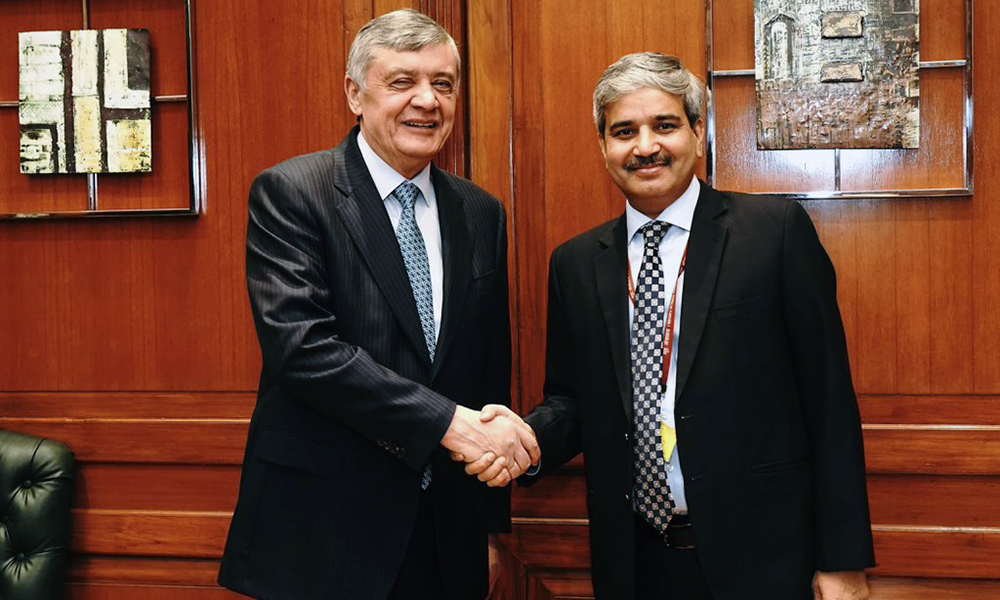
Russia’s special envoy for Afghanistan Zamir Kabulov held talks with India’s external affairs minister JP Singh to discuss the situation in the country.
Kabulov met with Singh during a visit to India.
In a post on X, India’s external affairs ministry spokesperson Randhir Jaiswal said: “India and Russia held bilateral consultations on Afghanistan today in New Delhi.
“Amb. Zamir Kabulov, Special Presidential Envoy for Afghanistan, and JP Singh, Joint Secretary (PAI) discussed the current situation in Afghanistan and emphasized on the need to provide development assistance for the welfare of the Afghan people,” he said.
An official at the Russian embassy said Kabulov held talks with Singh under the framework of India-Russia foreign ministerial consultations on Afghanistan.
New Delhi has been pitching for providing unimpeded humanitarian aid to Afghanistan to address the humanitarian crisis in the country.
In June 2022, India re-established its diplomatic presence in Kabul by deploying a technical team in its embassy in the Afghan capital.
The Islamic Emirate says that due to the diplomatic efforts of the IEA, a good spirit of cooperation has been formed in the region towards Afghanistan, and the countries have understood that stable security and stability in Afghanistan is in the interest of all countries.
Latest News
China invites IEA deputy PM to Trans-Himalayan Forum
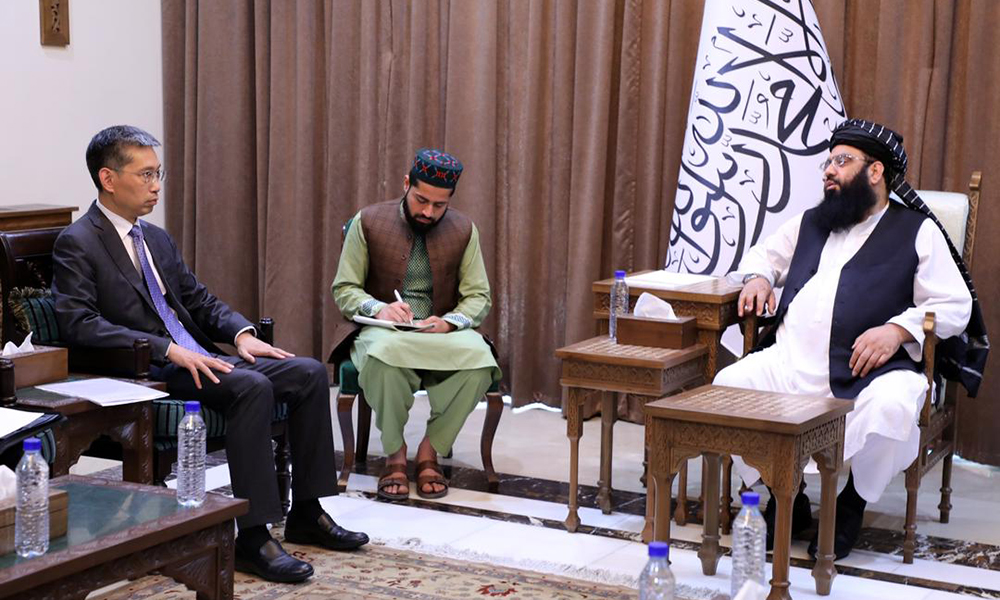
Zhao Xing, the Chinese Ambassador to Kabul, has invited political deputy prime minister Mawlavi Abdul Kabir to participate in the upcoming Trans-Himalayan Forum meeting.
The Chinese envoy said at a meeting Wednesday with Kabir that Beijing supports the Islamic Emirate in terms of attending international meetings, especially UN Security Council meetings.
Zhao also said China was committed to cooperating with the Islamic Emirate.
Kabir in turn expressed his gratitude for China’s support and cooperation across numerous sectors and said that as a responsible government, the Islamic Emirate is bound by commitments made and tries to play an active role in regional issues and the stability and development of the region.
Kabir also acknowledged China’s support of the Islamic Emirate and said Beijing’s cooperation can bring about positive changes and economic growth in the country.
-
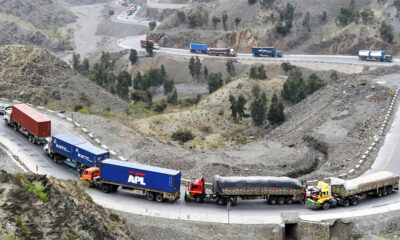
 Business5 days ago
Business5 days agoAfghanistan, Pakistan agree on new travel mechanism for truckers
-

 Sport5 days ago
Sport5 days agoKolkata down Mumbai to confirm IPL play-off berth
-

 Business4 days ago
Business4 days agoAfghanistan can become important industrial center in region: Hanafi
-
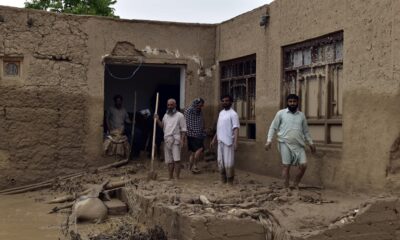
 Latest News4 days ago
Latest News4 days agoBaghlan floods leave 315 dead and over 15,00 injured so far
-
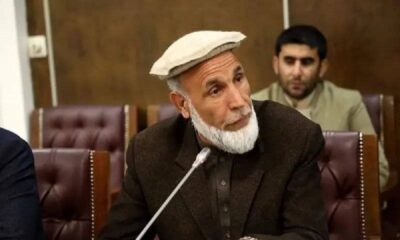
 Latest News5 days ago
Latest News5 days agoEx-MP Allah Gul Mujahid arrested in connection with a murder
-
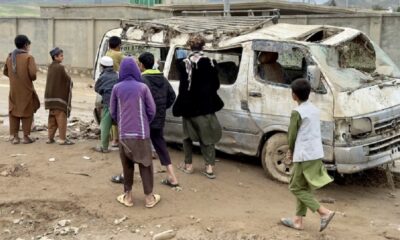
 Latest News5 days ago
Latest News5 days agoSeveral countries express solidarity with Afghanistan after flash floods kill hundreds
-
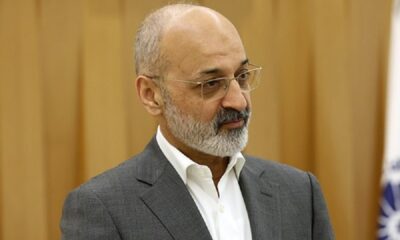
 Latest News4 days ago
Latest News4 days agoInvesting in Afghanistan mines can be profitable for Iranian industry: Qiafeh
-
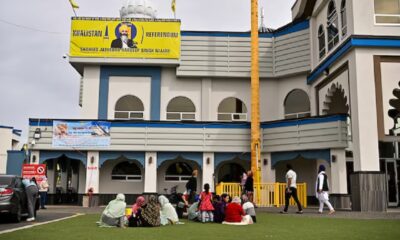
 World5 days ago
World5 days agoCanadian police arrest fourth man for murder of Sikh leader Nijjar




